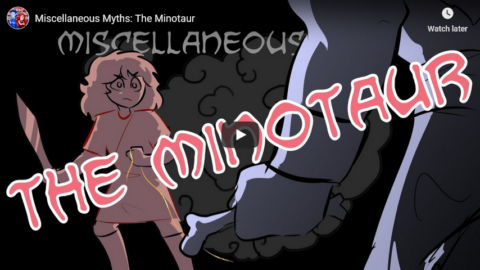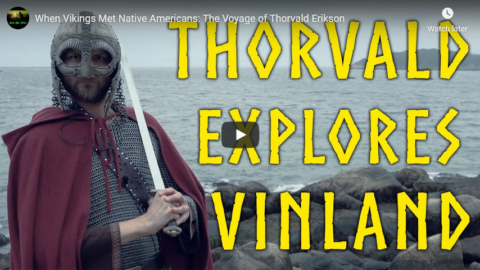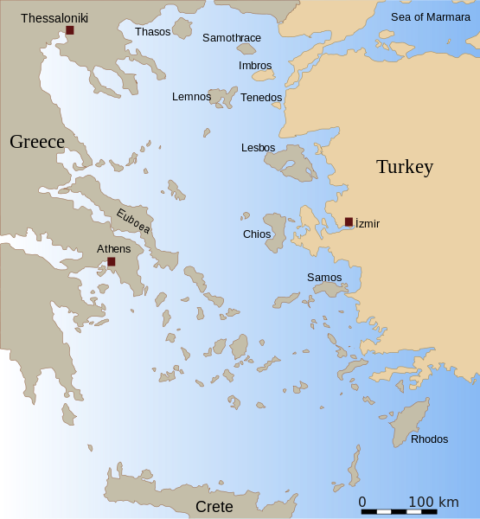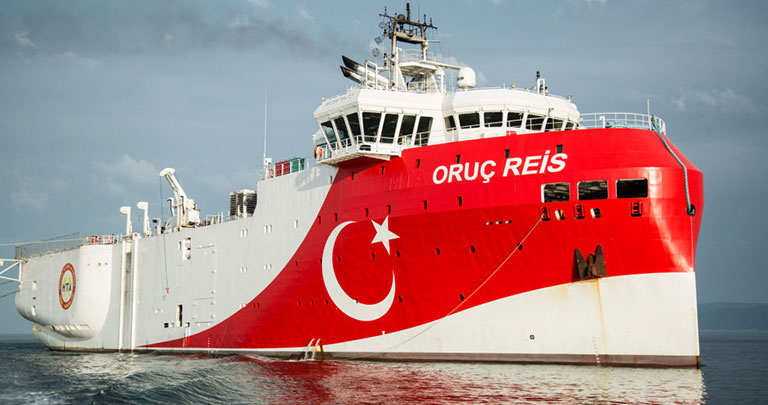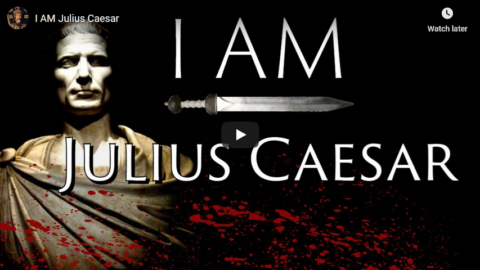Overly Sarcastic Productions
Published 9 Oct 2020Ah, Theseus. Athens’ favorite trash man. Let’s talk about someone a little more interesting — literally anyone involved in this story will do.
Good news, I found the 1080P button! Bad news, the minute differences in image resolution are now threatening my sanity.
Our content is intended for teenage audiences and up.
PATREON: https://www.Patreon.com/OSP
DISCORD: https://discord.gg/kguuvvq
MERCH LINKS: http://rdbl.co/osp
OUR WEBSITE: https://www.OverlySarcasticProductions.com
Find us on Twitter https://www.Twitter.com/OSPYouTube
Find us on Reddit https://www.Reddit.com/r/OSP/
October 10, 2020
Miscellaneous Myths: The Minotaur
China’s national memories are oddly inconsistent
At UnHerd, Bill Hayton looks at the one conflict between China and a western nation that bulks disproportionally large in the current Chinese government’s historical grievance-bank:
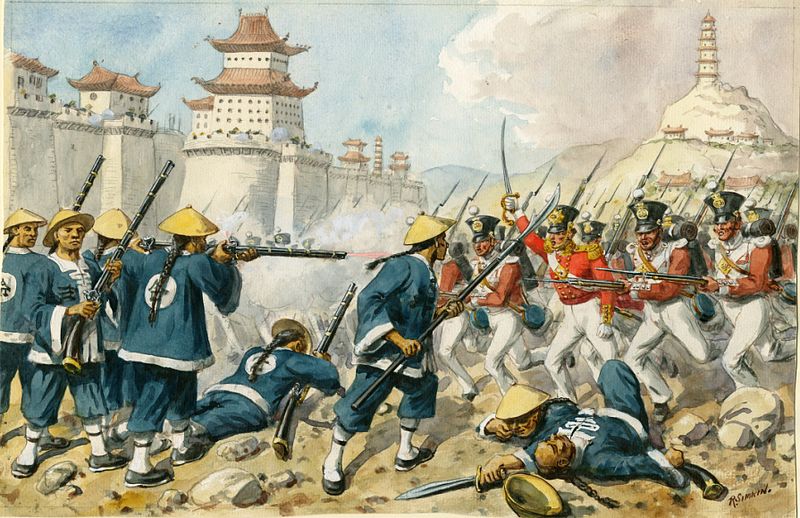
“The 98th Regiment of Foot at the attack on Chin-Kiang-Foo, 21 July 1842.”
Painting by Richard Simkin (1840-1926) via Wikimedia Commons.
Take three mid-19th century Asian conflicts: one killed 20 million people, one killed well over 100,000 and a third killed 20,000. Which one, despite being barely noticed by the Chinese government at the time, is the most discussed today and has become emblematic of an historic clash between East and West?
The immensely deadly Taiping Rebellion between 1850 and 1864 and the vicious conflict between “Hakka” and “Cantonese” peoples between 1855 and 1867 are barely known outside China, despite their far bloodier impacts on human lives. We know vastly more about the “First Opium War” of 1840 because it has played a totemic role in two political arenas: one in China and one in the UK. And in both places, the origins of the war have been obscured and distorted to suit political agendas.
In China, the “Opium War” marks the beginning of what the Communist Party currently calls the “century of national humiliation” — a period of unrelenting misery that only ended in 1949 with the Party’s victory in the Chinese Civil War. It is a narrative that underpins both the Party’s right to rule China and its increasingly assertive foreign policy. In Britain, the narrative of the war has been a weapon wielded variously by Liberal critics of a Whig government, puritan campaigners against drugs, leftist opponents of British foreign policy and Twitter-users claiming that white people are inherently racist. All these critiques and narratives caricature the evidence.
In the comic-book version, the British Empire went to war in 1840 to force an illegal and immoral drug, opium, down the respiratory passages of the Chinese people, purely for its own ill-gotten ends. This narrative is oddly patronising. It assumes that the Chinese side were merely naïve dupes, hapless victims to imperial power. It is time to recognise that there were several protagonists in the First Opium War.
On one side were the British free-traders, men who wanted an end to Chinese restrictions on commerce, whether of cotton or opium. There was also an East India Company anxious to maintain its good relations with local officials, and a London government and its critics with their own agendas. On the other was an imperial court in Beijing split between reformers and a clique of Chinese conservative “scholar-officials” intent on keeping foreign influence at bay. In the middle was an Asian financial problem triggered by a European war.
When Vikings Met Native Americans: The Voyage of Thorvald Erikson
Atun-Shei Films
Published 9 Oct 2020Happy Leif Erikson Day! After Leif’s discovery of unknown lands to the west of Greenland, his brother Thorvald set off on an expedition of his own. Thorvald’s voyage, as related in the medieval Icelandic text The Saga of the Greenlanders, marks the first time in recorded history that Europeans came face-to-face with Native Americans. In this video, I regale you with this tale of adventure, exploration, and cultural collision. And for some reason, I spend about a third of the video talking about a bowl, a coin, and some yarn made of goat hair.
Support Atun-Shei Films on Patreon ► https://www.patreon.com/atunsheifilms
Leave a Tip via Paypal ► https://www.paypal.me/atunsheifilms (All donations made here will go toward the production of The Sudbury Devil, our historical feature film)
Buy Merch ► teespring.com/stores/atun-shei-films
#LeifErikson #Vinland #History
Original Music by Dillon DeRosa ► http://dillonderosa.com/
Reddit ► https://www.reddit.com/r/atunsheifilms
Twitter ► https://twitter.com/atun_shei~REFERENCES~
[1] Magnus Magnusson & Hermann Pálsson. The Vinland Sagas: The Norse Discovery of America (1965). Penguin Books, Page 59-61
[2] Sîan Grønlie. The Book of the Icelanders / The Story of the Conversion (2006). Viking Society for Northern Research, Page 4
[3] Ingeborg Marshall. “Beothuk Transportation” (1998). Heritage Newfoundland and Labrador https://www.heritage.nf.ca/articles/a…
[4] Patricia Sutherland. Dorset-Norse Interactions in the Canadian Arctic (2000). Canadian Museum of Civilization, Page 2-9
A century on, Greece and Turkey are back at daggers drawn
John Psaropoulos on the ever-more-heightened tension in the Aegean Sea as Turkey looks to muscle in on Greek-claimed waters in search of natural gas (or a fight):
Last summer, Greece and Turkey came closer to war than they have done since 1974, when Turkey invaded Cyprus. The drama began to unfold on 21 July, when Turkey announced it was sending a seismic survey ship, the Oruc Reis, to look for oil and gas in areas the UN Law of the Sea awards to Greece.
Within hours, the Greek and Turkish navies had deployed throughout the Aegean and east of Crete. They remained so for two months. Greek helicopters pinned down Turkish submarines off the island of Evia. Frigates shadowed each other so closely, that on 12 August two of them collided when a Turkish frigate performed a manoeuvre across the bows of a Greek one. Greek and Turkish F-16s intercepted each other between Crete and Cyprus. Greece came close to invoking the European Union’s mutual defence clause.
On 13 September, Turkey withdrew the Oruc Reis, ostensibly for maintenance, and redeployed its navy. In the coming days, Greece and Turkey are to resume talks abandoned four and a half years ago on carving out their continental shelves – vast swathes of the east Mediterranean where they may exercise exclusive commercial rights to exploit undersea resources.
For now, there is de-escalation, but expectations for the outcome of these talks are low.
“Right now, Turkey doesn’t consider itself an extension of the West. It doesn’t consider that it has commitments and responsibilities towards the West,” says Konstantinos Filis, who directs the Institute of International Relations in Athens. “It believes it is an autonomous power in the region, that it is very potent, and that all its neighbours should respect it. The Turkish leadership doesn’t appear to be prepared for compromises with neighbours it considers inferior.”
The east Mediterranean is where the world’s most significant natural gas discoveries have occurred since the turn of the millennium. Israel and Egypt are now energy independent. Cyprus soon hopes to be. But Greece potentially dwarfs them all.
Seismic explorations it conducted six years ago suggest that Greece has natural gas reserves of 70-90 trillion cubic feet – as much as Israel, Egypt and Cyprus have discovered combined, with a pre-Covid-19 market value of about $200 billion. Assuming gas is viable for the next 25 years, Greece’s reserves, if proven, would cover its energy needs and turn gas into a lucrative export to the European Union. As much as a third of the value of the gas would go to the Greek state in taxes and royalties, allowing it to pay off a fifth of its external debt, now approaching twice its GDP.
This is clearly a future Turkey, with eight times Greece’s population and four times its economy, would rather claim for itself. Legally, it cannot do so. Under the rules of the UN’s Law of the Sea (UNCLOS), the lion’s share of east Mediterranean waters goes to Greece and Cyprus. Recep Tayyip Erdogan, Turkey’s leader for the past 18 years, feels that the Greeks are hemming him in.
I AM Julius Caesar
The Study of Antiquity and the Middle Ages
Published 2 Jul 2020Politician, warrior, priest, lover.
My name is Gaius Julius Caesar and I led one of the most extraordinary lives in recorded history.
My victories over foes both foreign and domestic are still studied today. I upended the Roman Republic and became its first dictator.
I loved Cleopatra.
My brutal assassination has been synonymous with bitter betrayal for 2000 years.
New videos from The Study of Antiquity and the Middle Ages, the I AM series allows the great figures of history to introduce themselves in brief, compelling, historically-accurate episodes. Look for more I AM videos of your favorites!
I AM Julius Caesar! Welcome to the first episode of the I AM series where you live history itself through the mind, viewpoints and lives of a historical character!
See and experience the world they lived and celebrate their triumphs and feel their defeats.
This first episode is on Julius Caesar, the revolutionary who set into place the foundations of what would become the Roman Empire.
This was written, directed and created by the extraordinary professional DW Draffin! He is an audio book narrator, stage actor, and independent author.
AUDIOBOOK NARRATOR
https://www.audible.com/search?search…STAGE ACTOR
https://www.youtube.com/watch?v=xTept…INDEPENDENT AUTHOR
https://www.amazon.com/DW-Draffin/s?k…If you need a professional then contact him!
To support the channel, become a Patron and make history matter!
Patreon: https://www.patreon.com/The_Study_of_…
Donate directly to PayPal: https://paypal.me/NickBarksdale
Check out our newly opened store!
teespring.com/stores/antiquity-and-th…Get your SPQR Face Masks today!
https://spqr-emporium.com/collections…Enjoy history merchandise? Check out affiliate link to SPQR Emporium!
http://spqr-emporium.com?aff=3*Dislaimer, the link above is an affiliate link which means we will earn a generous commission from your magnificent purchase, just another way to help out the channel!
Join our community!
QotD: McMansions
McMansions are faker than your friends were in middle school. What do I mean by fake? I mean using low-cost reproductions of quality materials or features in order to portray the illusion of wealth. I’m talking about the knockoff handbags of architecture.
“McMansion Hell from A to Z: Part One (A-H)”, McMansion Hell, 2016-09-25.

